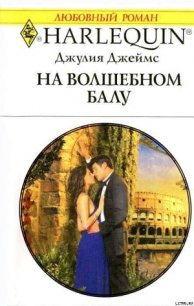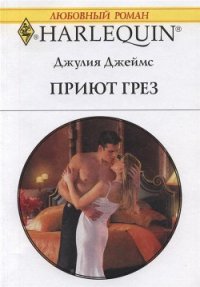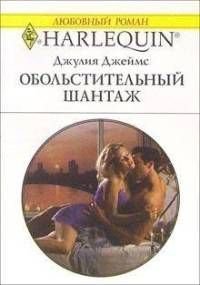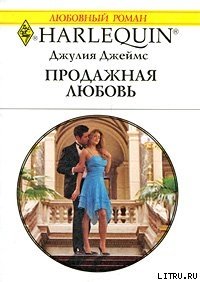Julia Ward Howe - Richards Laura E. (бесплатная регистрация книга TXT) 📗
"Minnesota in Winter
"The twistings and turnings of a lecture trip have brought me twice, in the present season, to Minnesota....
"To an Easterner, a daily walk or two is the first condition of health. Here, the frost seemed to enter one's very bones, and to make locomotion difficult.... Life at the hotel was mostly an anxious tete-a-tete with an air-tight stove. Sometimes you roasted before it, sometimes you froze. As you crammed it with wood at night, you said, 'Will you, oh! will you burn till morning?' Finally, on the coldest night of all, and at that night's noon, you bade it farewell, on your way to the midnight train, and wondered whether you should be likely to go further and fare worse....
"After the lecture an informal sitting was held in the parlor of my hostess, at which there was much talk of the clubs of Boston; 'If I forget thee, O Jerusalem!' being the predominant tone in the minds of those present. And at noon, away, away, in the caboose of a freight car, to meet the passenger train at Owatonna, and so reach Minneapolis by early evening.
"To travel in such a caboose is a somewhat rough experience. The dirt is grimy and of long standing. The pictures nailed up on the boards are not of an edifying description. The railroad employees who have admitted us into their place of refuge wear dirty overalls, and eat their dinner out of tin pails all afloat with hot coffee. One of my own sex keeps me in countenance....
"Minneapolis
"Twenty years ago, a small collection of wooden houses, of no particular account, except for the natural beauties of the spot on which they stood. Now, a thriving and well-built city, whose manufacturers have settled the controversy between use and beauty, by appropriating the Falls of St. Anthony to the running of their saw- and flour-mills. My first sensation of delight here was at finding myself standing on Hennepin Avenue. To a reader of Parkman's histories, the spot was classic.... To refresh my own recollections, I had recourse to the Public Library of the town, where I soon found Parkman's 'Discovery of the Great West.' Armed with this volume, with the aid of a cheap and miserable railroad map, I traced out something of the movements of those hardy French explorers. It was like living part of a romance, to look upon the skies and waters which had seen them wandering, suffering, yet undaunted....
"St. Paul
"But I cannot rest so near St. Paul without visiting this famous city also. I contemplate a trip in the cars, but my friendly host leaves his business for a day, and drives me over in an open sleigh. I do not undertake this jaunt without Bostonian fears of death of cold, but Minnesota cold is highly stimulating, and with the aid of a bottle of hot water, I make the journey without a shiver.... Numbers of Indian squaws from Mendota walk the streets in groups. I follow three of them into a warehouse. One of them has Asiatic features—the others are rather pretty. They are Sioux. I speak to them, but they do not reply. The owner of the warehouse asks what he can show me. I tell him that I desire to see what the squaws will buy. He says that they buy very little, except beads, and have only come into the store to warm themselves. They smile, and obviously understand English. We dine at the hotel, a very pleasant one. There is no printed bill of fare, but the waiter calls off 'beefsteak, porksteak,' etc., and we make a comfortable meal. I desire to purchase some dried buffalo meat, and find some, not without difficulty, as the season for selling it is nearly over. The crowning romance of the day is a sleighride of five miles on the Mississippi, giving us a near view of its fluted bluffs and numerous islets. We visit also the Falls of Minnehaha, now sheeted in ice, but very beautiful, even in this disguise. We talk of 'Hiawatha,' and my companion says, 'If Mr. Longfellow had ever seen a Sioux Indian, he would not have written "Hiawatha."' The way to the bottom of the falls is so slippery with ice that I conclude not to attempt it. The day, which was one of great exposure, passed in great pleasure, and without chill or fatigue....
"In my days of romance, I remember watching late one night on board the Mediterranean steamer in order to be sure of the moment in which we should pass beyond the boundaries of the Italian shore. Something like such a feeling of interest and regret came over me when, in the unpoetic sleeper, I asked at what hour of the night the cars would pass out of Minnesota on the way back to Chicago. This sincere testimony from a veteran of travel, in all sorts, will perhaps convince those who do not know the young State that she has a great charm of beauty and of climate, besides a great promise of future prosperity and eminence."
"Kansas
"Travel in Minnesota was living romance. Travel in Kansas is living history. I could not cross its borders, new as these are, without unlocking a volume of the past, written in blood and in prayer, and sealed with the forfeit of noble lives. A ghostly army of warriors seemed to escort me as I entered the fair, broad territory. John Brown, the captain of them, stretched his hand to the Capitol, and Sumner, and Andrew, and Howe were with him. Here was the stand made, here the good fight begun, which, before it was well under way, divided the thought and sentiment of Europe, as well as those of America.
"My tired spirit sought to shake off at this point the commonplace sense of weariness and annoyance. To be in Kansas, and that for work, not for pastime. To bring the woman's word where the man's rough sword and spade had once wrought together, this was poetry, not prose. To be cold, and hungry, and worn with journeying, could not efface the great interest and pleasure....
"Atchison
"I was soon told that a gentleman was anxious to speak with me concerning my land at Grasshopper, which borders immediately upon his own. Judge Van Winkle accordingly, with due permission, waited upon me, and unfolded his errand. Grasshopper, he said, was a growing place. It possessed already a store and an apothecary. It had now occasion for a schoolhouse, and one corner of my land offered the most convenient place for such an institution. The town did not ask me to give this land—it was willing to pay a fair price for the two acres wanted. Wishing to learn a little more about the township, I asked whether it possessed the requisite variety of creeds.
"'Have you a Baptist, a Methodist, an Episcopalian, and a Universalist church?'
"'No,' said my visitor, 'we have no church at all. People who wish to preach can do so in some private house.' I afterwards learn that Judge Van Winkle is a student of Plato; who knows what may be his Hellenic heresy? He is endorsed, however, by others as a good, solid man, and the proposition for the schoolhouse receives my favorable consideration.
"Leavenworth
"My first visit to Leavenworth was a stay of a couple of hours between trains, on my way to southern Kansas. Short as this was, it yet brought to my acquaintance two new friends, and to my remembrance two old ones. Of the new friends, the first seen was Rev. Edward Sanborn, the Unitarian minister of the place. Mr. Sanborn met me at the comfortless depot, and insisted upon taking me to his lodgings, where Friend Number Two, in the shape of his amiable wife, added herself to the list of my well-wishers. Mr. Sanborn had just been burned out. His house took fire while he and his wife were spending Christmas Day with a neighbor, and burned so quickly that no article in it could be saved. He had found in the ashes the charred remains of his manuscript sermons, and had good hope of being able to decipher them. As the pleasant minutes passed in easy conversation, I could not help reflecting on the instinctive hospitality of Western life. This cosy corner in a mere hired bedroom had given me a rest and a shelter which I should have been unwilling to ask for in some streets of palaces which have been familiar to me from my youth up."




